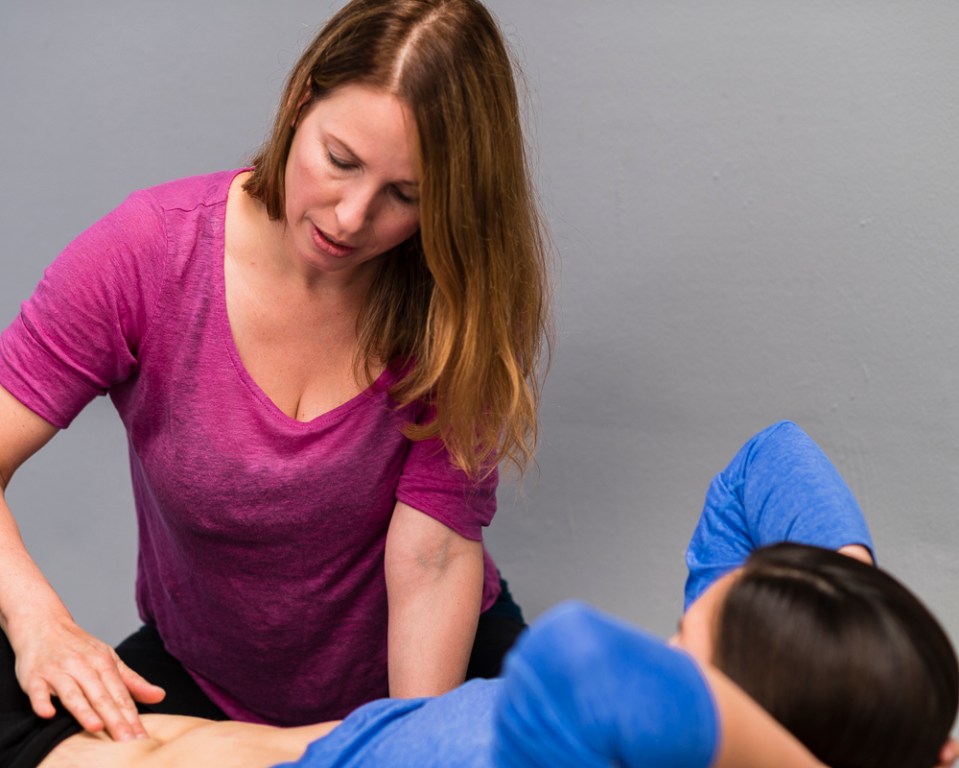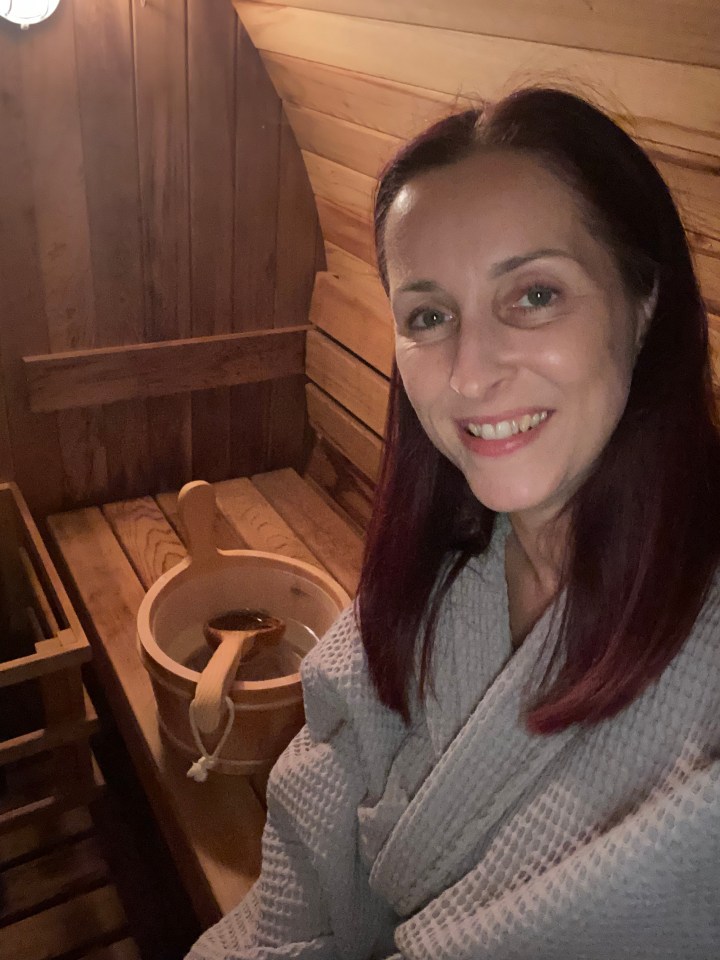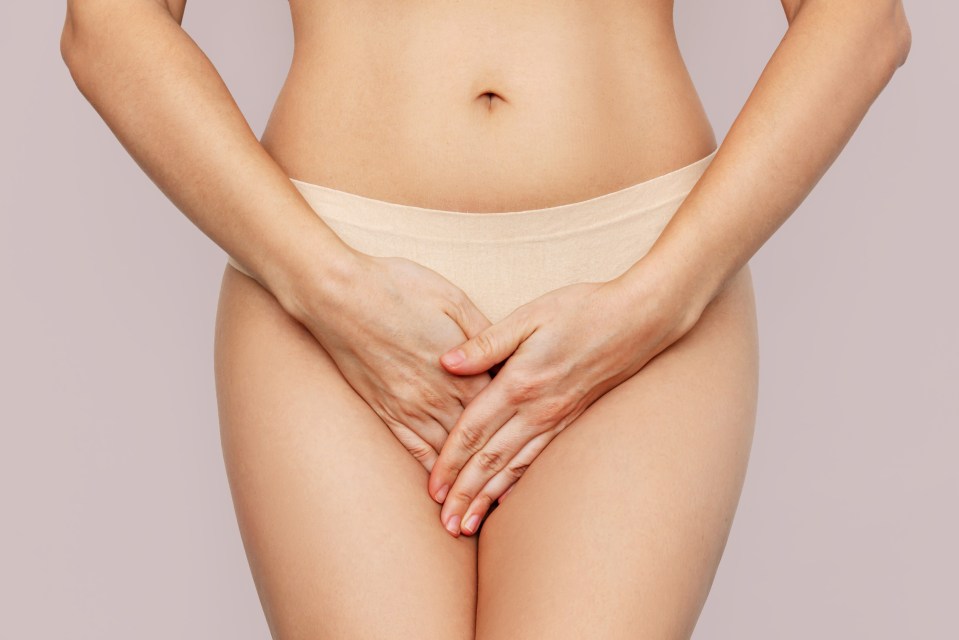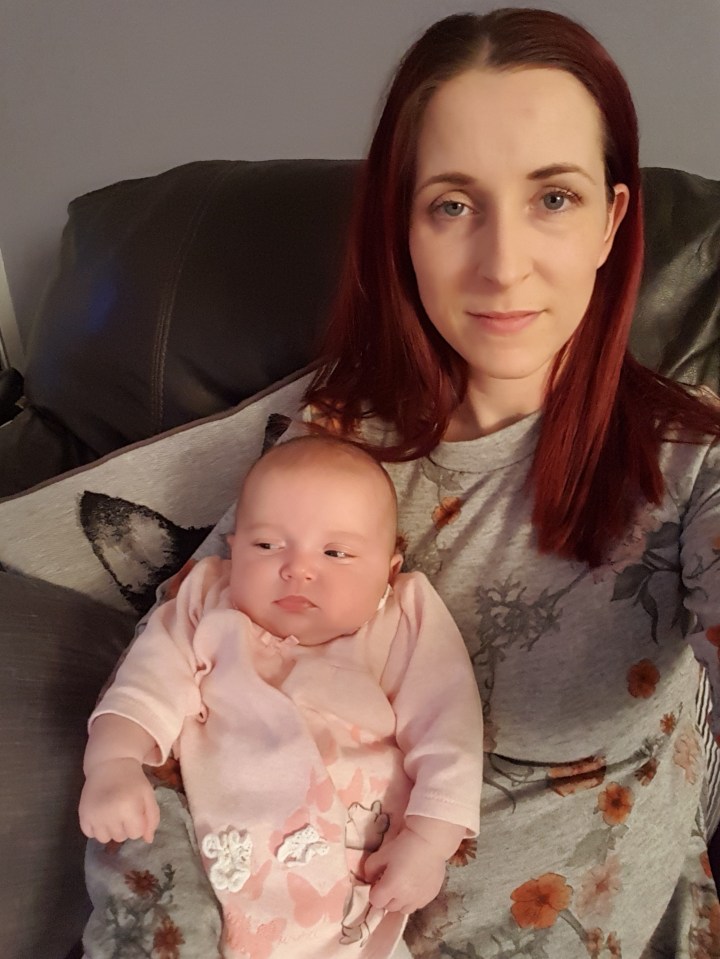WHEN Tina Engelmann had an accident while running for the bus, she wondered, “How has it come to this?”
“I sat on the street in a puddle of my own pee, in floods of tears,” recalls Tina, 48. “I was wearing grey leggings so it was visible.
7
Around 14 million of us, or one in five, experience bladder leakageCredit: Getty
7
Tina Engelmann, 48, suffers with incontinence and her trouble got worse with the birth of her second child aged only 42Credit: supplied
7
Tina, who has helped herself with a combination of physical therapy, breathing exercises and massage, wants to help break the taboo on incontinenceCredit: supplied
“As a Pilates instructor, I had worked on my pelvic floor. I couldn’t understand why this was happening to me.”
Tina’s incontinence had worsened with the birth of her second child, and she was only 42 years old.
Now, it wasn’t just urine leaks, but faecal, too.
She says: “As women, we are conditioned into thinking this is normal — that it’s just an ‘oops moment’. But I was not prepared to live this way.”
An estimated 14 million of us, or one in five, experience bladder leakage. A further 6.5 million, or one in ten, have difficulty controlling their bowel, according to Bladder & Bowel UK.
It’s likely these figures are just the tip of the iceberg, as embarrassment holds people back from seeking help.
But very few talk about these troubles as openly as Tina, who wants to help break the taboo.
Breathing exercises
Dr Shazia Malik (shaziamalik.co.uk) is a consultant gynaecologist and obstetrician, and says of those who are suffering with leaks: “Only ten to 20 per cent of them come forward for treatment.”
Tina’s leaks began when she was 39 after the delivery of her first child. Vaginal deliveries, especially those involving forceps or ventouse — as Tina’s was — can weaken the pelvic-floor muscles.
She recalls: “If I coughed, I would pee. If I laughed, I would pee. I struggled to bend over and bath the baby without wetting myself.”
The 4 best moves to beat incontinence, boost your sex life & flatten your tummy
Tina suffered a prolapse but she managed to improve her symptoms with physical therapy. When she had her second daughter three years later, though, her symptoms returned with a vengeance — and GPs gave her little help.
7
Getting through the weekly food shop without leaking was a challenge for TinaCredit: supplied
7
She is now a pelvic-floor coach and has helped dozens of women get their lives back on trackCredit: supplied
She says: “I’d leak through pads. One time I ran up to a shop and my pad burst. I had wee running down my legs.
“I was just told to get some big nappies. I couldn’t wear the clothes I loved as the nappies would show through.”
Even just getting through the weekly food shop without leaking was a challenge.
As for socialising, forget it. If I went out and laughed my head off, I’d probably leak all over the bar stool. Intimacy, forget it too. I was embarrassed to speak to my husband
Tina Engelmann
And there were other problems. Tina, who lives near Ipswich, adds: “I couldn’t play with my children, I couldn’t run around with them as they got older. Trampolines were a big no-no. I felt like a boring mum.
“As for socialising, forget it. If I went out and laughed my head off, I’d probably leak all over the bar-stool.
“Intimacy, forget it too. I was embarrassed to speak to my husband [about the issue].
“I used a separate bin for my nappies so he wouldn’t see. I kept it a secret. I didn’t want him to know I was pooping my pants.
“Even if I felt a bit sexy, the pads stank of chemicals and urine. It was very offputting.
“I just felt so down and so hopeless. It didn’t help that I was told by professionals this was how it would be from now on.”
But Tina has helped herself with a combination of physical therapy, breathing exercises and massage.
“What doesn’t work is doing a few kegels,” she says. “And the Squeezy app recommended by the NHS, it’s rubbish. You need to look at the whole picture, not just the pelvic floor. Look at the whole of your core (muscles), posture, breathing and diet.”
Meanwhile, mum-of-four Lindsey Gage carries spare knickers in her bag in case of leaks. The content creator, 42, began leaking after having second son Finlay, now 16. She’d had no issues after having first child Bailey, now 20.
Her symptoms then worsened after giving birth to twins, Scarlett and Thea, now eight.
She says: “There have been times when my kids have wanted me to chase them, but as soon as I start running, I feel wee trickling down my leg,
I now carry spare pants in my bag, and there have been many times where I’ve had a leak and had to change myself
Lindsey Gage
“If I take the kids to a trampoline park, that will cause little trickles. Sneezing, laughing or coughing would also cause pee to come out.
“I recently had a cough for three weeks that got so bad I had to buy pads.
“I felt embarrassed buying them, given that I’m only 42. I thought they were for old ladies, and I’d never imagined I’d have to wear them at my age.
“I now carry spare pants in my bag, and there have been many times where I’ve had a leak and had to change myself.”
Lindsey, from Cardiff, had physiotherapy in February 2020 but the service was then stopped during Covid. She has never been back to the GP since.
She says: “I try to remember to do my pelvic floor exercises and when I do, it helps.”
It’s often assumed incontinence is triggered by having kids, or age, but obesity, genetics, bladder damage or irritation and neurological conditions such as MS are other causes.
Nerve stimulation
A decline in women’s oestrogen levels during menopause can also weaken the pelvic floor.
Dr Malik often sees women in her clinic who have suffered in silence for many years.
She says: “Many see it as a normal consequence of having children and this should not be the case.
“Women should know there are options available to help them.
Dr Malik insists pelvic-floor exercises do help with reducing leaks, and she recommends that new mums should try to do them several times a day — perhaps while feeding their babies.
But lifestyle changes can make a difference, too, such as quitting smoking, cutting own alcohol and caffeine and losing weight.
Surgery is also available, in extreme cases.
I felt hopeless for a while but you can turn your life around
Tina Engelmann
Dr Malik advises new mums: “If you are still leaking urine at your eight-week post-natal check, tell your GP or midwife. They may refer you to a specialist for help.
“But even if you have been suffering for a long time, this does not mean it is not easily treatable.
“New medications are being developed. We can offer nerve stimulation or Botox injections.
“We can also test to work out the best treatment for you.”
Now a pelvic-floor coach, Tina — see Instagram @reclaimandrecover — has since helped dozens of women get their lives back on track after incontinence.
She says: “I felt hopeless for a while but you can turn your life around.
“I am sharing my story as we need to be more open about this – it shouldn’t be a taboo subject.
“We can break this cycle.”
7
Mum-of-four Lindsey Gage, 42, carries spare knickers in her bag in case of leak
7
The content creator’s symptoms then worsened after giving birth to her twins
Why you should never go for a ‘just-in-case’ wee
CHANCES are this scenario will sound familiar to you…
You’re just about to leave the house and quickly pop to the loo, ‘just in case’.
If so, you could be putting yourself at risk of incontinence, experts warn.
Pelvic health physiotherapist Esther Stubbs said: “By peeing frequently, you are training your bladder to want to empty when it isn’t full.”
One of the easiest ways to help your pelvic floor is to stop this habit immediately, she added.
Other experts have warned that you’re actually making your bladder more sensitive.
Prof Stergios Doumouchtsis, a leading expert in urogynaecology based at Epsom and St Helier University Hospitals NHS Trust, said ‘just-in-case’ pees mean the bladder learns to give you signals of fullness at lower volumes.
“The purpose of the bladder as a reservoir for urine can become compromised, and therefore the bladder will start needing the toilet and sending you signals of urgency too early, when the volumes of the bladder are lower, or more frequently,” they added.
“The bladder won’t necessarily become anatomically smaller. But functionally it is smaller.
“Therefore it can affect our activities because we become more engaged to the bladders’ calls.”



